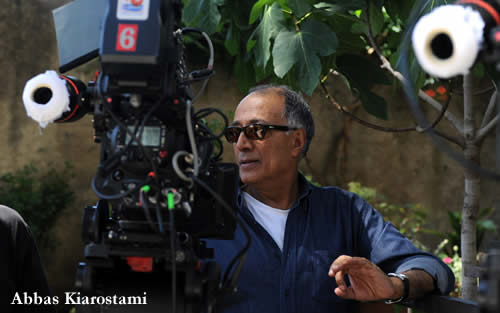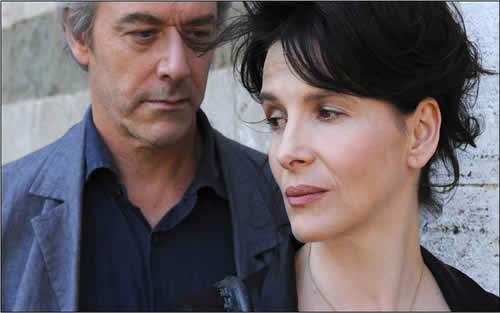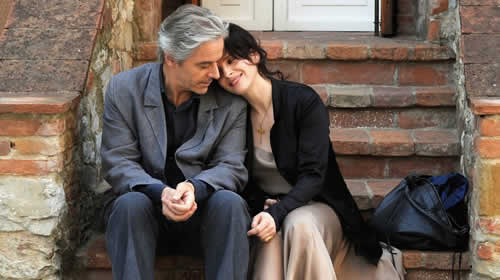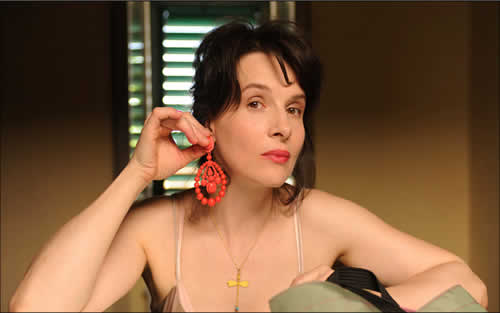 Cerified Copy, the latest Abbas Kiarostami film will be on US screens soon and to learn more about this film, we interviewed William Shimell, the actor of the film.
Cerified Copy, the latest Abbas Kiarostami film will be on US screens soon and to learn more about this film, we interviewed William Shimell, the actor of the film.
William Shimell made his screen acting debut alongside Juliette Binoche in Abbas Kiarostami’s Copie Conforme (Certified Copy), in competition at Cannes Festival 2010. Born in 1952, he is one of Britain’s most accomplished operatic baritones and has earned himself an international reputation in the world’s leading opera houses.
William is well known for his interpretations of Mozart’s Don Giovanni, which he first sang in Britain for Welsh National Opera and ENO, and has since sung in opera houses throughout the world. He has recorded the role for EMI with Riccardo Muti. His reputation has been further enhanced by his worldwide performances of Marcello in La Bohème, as Nick Shadow in The Rake’s Progress, as Sharpless in Madame Butterfly, as Count Almaviva in Le Nozze di Figaro, as Don Alfonso in Così fan tutte and as Dourlinski in Cherubini’s Lodoïska at La Scala, which was recorded live for Sony.
throughout the world. He has recorded the role for EMI with Riccardo Muti. His reputation has been further enhanced by his worldwide performances of Marcello in La Bohème, as Nick Shadow in The Rake’s Progress, as Sharpless in Madame Butterfly, as Count Almaviva in Le Nozze di Figaro, as Don Alfonso in Così fan tutte and as Dourlinski in Cherubini’s Lodoïska at La Scala, which was recorded live for Sony.
In 2005 William took the title role in Handel’s Hercules in a Luc Bondy production which was filmed for broadcast and DVD release. He is also much in demand on the concert platform, appearing at a range of venues including the Orange Festival in France, and recording performances with the likes of Sir Georg Solti and Riccardo Chailly.
Certified Copy is the story of a meeting between one man and one woman, in a small Italian village in Southern Tuscany. The man is a British author who has just finished giving a lecture at a conference. The woman, from France, owns an art gallery. This is a common story that could happen to anyone, anywhere.
 Bijan Tehrani: How were you first introduced to Certified Copy?
Bijan Tehrani: How were you first introduced to Certified Copy?
William Shimell: I was working with Abbas Kiarostami in the south of France at the opera Festival, where he was directing 2 years ago. Abbas asked me if I had ever been in a film and I said no and then he asked me if I would be interested in being in a film, I had no idea what I was getting myself into. I though that maybe he is asking me to do a line or two or maybe just be on the background and sing but that was not what he had in mind at all.
BT: Did you read the script before getting involved with Certified Copy?
WS: I read the script before going to the shoot yes, but not before I accepted and signed the contract, basically I wanted to work with Abas and it would not have mattered what he proposed. I enjoyed the experience of working with him in France so much that I was very interested in working with him again whether it is with a film or any other project. The first version of the script I saw had been translated from Farsi into French and then from French into English; so after going through two translations in two languages it was almost incomprehensible, I think that the person who translated it from French to English did not do a very good job. Abbas and his assistant Massoumeh Lahidji did actually work very hard on the script to get it to what we eventually worked with.
BT: How did you communicate with Abbas and was there any difficulty with the language barrier?
WS: No, his assistant Massoumeh Lahidji is an astonishing translator and Abas English is not that bad. He can certainly make himself understood and one of the reasons why I enjoyed working with him is that I had a very good grip on what he was saying. When you work in Opera there is no real barrier in the language at all.
BT: When was the first time that you were exposed to Abbas work and when did you begin watching his films?
WS: To be honest I had never heard of him and I usually don’t go to the cinema, I have two young children and the only time that I go to the cinema is when I take my children to see films that young children like to see. Otherwise I am not a film buff. When I was told that Abbas would be directing the opera I did a little homework just to see what I was going to be going up against. As a result I saw some of his films; I find them quite difficult I must say.
see films that young children like to see. Otherwise I am not a film buff. When I was told that Abbas would be directing the opera I did a little homework just to see what I was going to be going up against. As a result I saw some of his films; I find them quite difficult I must say.
BT: How difficult was it to work in Certified Copy?
WS: It was horrifically difficult for me because I really did not know what I was doing; sometimes opera companies make video operas for their own purposes or for DVD, but I am an opera singer and not really an actor so I did not know what I was doing really, it was hard. As far as the character that I was playing and story in the film I concentrated on each scene as I came to it and it wasn’t until the film was put together that I really had an idea of what the result would be.
BT: How much freedom did Abbas give you in terms of his direction?
WS: He is used to working with none actors and he has a very light hand when he directs and he tries not intimidate. Especially with someone like me who is put I this situation and being in front of the camera, so I was never really aware that I was being directed; but Abbas still had a way of getting what he wanted.
BT: Describe working with Juliette Binoche?
WS: Well it was an enormous privilege to work with such a talented person and she was extraordinarily helpful and encouraging throughout the whole process really and I don’t know how I could have done it without her or everyone else’s help. One of the thing that surprised me was how open and eager everyone was to help out and work with someone who was inexperienced.
 BT: Did you do any study or research of the character that you were playing prior to the shoot?
BT: Did you do any study or research of the character that you were playing prior to the shoot?
WS: Well I read and learnt the script, but I’m an opera singer and I am used to searching out the character from the words and the orchestra score from the music that is usually where the character is hidden in opera. I didn’t have that in this film so I had to focus more on what the character said and use what few tools I had in my experiences in opera; the dialogue has to be from within you and form your own experience and from your own personality.
BT: Did you have a chance to change the dialogue to your liking?
WS: We worked to try to make the dialogue sound as natural to an Englishman as I could, because I was the only English person working on the project.
BT: How much do you think that the location meant to Certified Copy?
WS: When people see the film they we see that the star is Juliette and the co-star is the Italian countryside. The atmosphere of Italian countryside and the colors of the buildings, of the sky and the Tuscan countryside paint such a vivid picture. They really help shape the emotional structure in the film. What this film did do is give me a great deal of respect for film actors and I enjoyed making the film and it was a huge pleasure and privilege.
BT: Do you plan to be in another film in the future?
WS: I would love another try and I had such a fascinating try and when you get to my age it is not often that you get the opportunity to try something different and I would love to learn some more.

